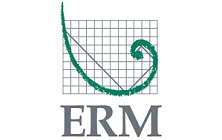
ERM has issued the findings of its most recent research into corporate sustainability up-take, demonstrating how companies are "slowly adapting" to incorporate more sustainable approaches as a business imperative.
The global environmental consultancy’s latest survey canvassed 151 companies with annual global revenues ranging from $2bn to $42bn, and active in cross-section of industries including chemical & pharmaceutical, technology, media and telecoms, mining, oil & gas and energy & power. It found that there has been a clear shift in the "gravity of ownership of the sustainability agenda" from traditional sustainability/CSR professionals to now include the likes of CFOs, heads of risk, investor relations and marketing.
The transition, ERM states, is being driven by a number of factors notably from compliance led drivers to those with a more direct impact on the business, including investor pressure and customer expectation.
"Investors are demanding greater comfort that the risks that exist with their investments, particularly with the likes of issues such as climate change, are now better understood and managed. Customers are demanding greater transparency of the source of materials, such as the metals in smartphones and the environmental and social impact of a company’s operations," the firm said.
Key headline statistics from the survey include: 79% of respondents believe revenue and growth opportunities have an influence on their organization’s sustainability agenda; 61% believe the sustainability function needs to become more commercial; 76% of respondents report increasing pressure from investors; 81% have plans to pursue integrated reporting, both to provide ‘C-suite grade’ data to the boardroom, and even ‘investor grade data’ to the stock market. However, just 11% of respondents claim to have developed and published an approach to contribute to the UN’s SDGs.
ERM sets out five stages of maturity with regards business response to sustainability, namely: the compliance meeters; the stakeholder pleasers; the risk proofers; the growth seekers and the vanguards.
Commenting on the findings, ERM partner, Matt Haddon, said: "This new survey comes at a time when mainstream investor pressure for real transparency on financial risks from climate change is mixing with customer demands for actions such as a radical end to plastic waste. With oil and gas majors starting to link executive pay to methane reduction and miners teaming with tech manufacturers to manage metals as ‘products rather than commodities’ sustainable business is fast becoming reality. For CEOs across the economy, sustainability is moving from an activist ‘echo-chamber’ to the boardroom."
